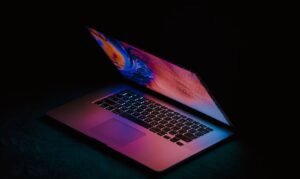Can AI Sing Songs?
Digital technology continues to advance, pushing the boundaries of what machines can do. One area that has gained significant attention is the field of artificial intelligence (AI). While AI has been successful in various applications, such as autonomous driving and natural language processing, there is a growing curiosity about its ability to sing songs. Can AI truly mimic human vocals and deliver a soulful performance? Let’s explore the current state of AI-generated music and its potential for the future.
Key Takeaways:
- AI-generated music is becoming increasingly realistic and indistinguishable from human compositions.
- Deep learning techniques enable AI to mimic singing voices with astonishing accuracy.
- AI-powered vocal synthesis opens up new possibilities in music production and creative expression.
The Evolution of AI-Generated Music
Artificial intelligence has come a long way in generating music that appeals to human listeners. Through neural networks and machine learning algorithms, AI systems are trained to analyze vast amounts of musical data. This training process enables them to recognize patterns, harmonies, and melodies commonly found in music compositions.
**With the ability to process and learn from a vast library of songs, AI-generated music has reached a level where it can **compose original pieces** that sound remarkably close to what a human musician might create.
One interesting application of AI in music is the imitation of singing voices. Singing requires complex control of pitch, timbre, and expression, which has traditionally been challenging to replicate artificially. However, AI advancements in deep learning and vocal synthesis have made significant strides in mimicking human singing voices.
The Capabilities of AI Singing
**AI-powered vocal synthesis** allows machines to produce singing voices that convincingly resemble those of real singers. By training on extensive vocal recordings, AI models can understand and replicate the nuances of human singing, including varying vocal techniques, vibrato, and emotional expression.
AI-synthesized singing voices have become so realistic that they can easily be mistaken for human performances. This technological leap opens new possibilities for music composition, as AI can generate or enhance vocals for compositions in various genres and styles.
**The ability of AI to sing using different languages and accents** further expands its potential, enabling collaborations and musical expressions that transcend cultural boundaries.
Applications and Implications
The emergence of AI-generated singing has significant implications for the music industry and beyond. Here are some notable applications and implications:
- Music Production: AI can assist musicians and producers by generating accompanying vocals or enhancing existing ones.
- Virtual Performances: AI-powered virtual singers, like Hatsune Miku, have gained popularity, performing live concerts in front of thousands of fans.
- Music Accessibility: AI-generated singing can provide people with vocal impairments or speech disabilities an opportunity to express themselves musically.
Exploring the Limits of AI Singing
While AI singing has made remarkable progress, it still faces certain limitations. Achieving true emotional depth in a performance remains a challenge for AI models, as they lack the human experience and understanding of music. AI-generated compositions can feel technically proficient but may lack the subtle nuances and improvisation that define a truly captivating performance.
Nonetheless, ongoing advancements in AI and machine learning continue to push the boundaries of what AI can achieve in the realm of music. As research in this field progresses, we can expect AI singing to become more emotionally expressive and musically versatile.
Data Points and Statistics:
| Year | AI-Generated Composition |
|---|---|
| 2017 | A neural network-generated album titled “I Am AI” reached number one on the classical charts. |
| 2020 | AI-generated song “Daddy’s Car” was merged with a live orchestra performance, showcasing the seamless integration of AI in music production. |
| Applications | Implications |
|---|---|
| AI-generated accompaniment vocals | Greater efficiency and creativity in music production |
| Virtual performers | New revenue streams and audience engagement in the music industry |
| Musical expression for people with disabilities | Inclusivity and empowerment in the creative arts |
| Limitations | Potential Solutions |
|---|---|
| Lack of emotional depth in performance | Continued research and improvements in AI models to capture emotional nuances |
| Limitations in improvisation and spontaneity | Development of AI systems that can adapt and respond in real-time |
The Future of AI Singing
As technology advances, it is likely that AI singing will become even more prevalent in the music industry and creative arts. AI has the potential to transform the process of music creation and provide new tools for artists and musicians to express themselves.
*With AI’s ability to continually learn and improve, we can expect future compositions and performances to *push the boundaries of innovation and creativity beyond what we can currently imagine.
So, can AI sing songs? The answer is a resounding yes. AI-generated music, including singing voices, has reached a level of realism that is difficult to distinguish from human performances. As AI technology continues to evolve, we can look forward to exciting new possibilities in music production and artistic expression.

Common Misconceptions
When it comes to the topic of AI singing songs, there are several common misconceptions that people tend to have. It is important to address these misconceptions in order to have a better understanding of the current capabilities of AI in the realm of music.
Misconception 1: AI can perfectly mimic human singing
- AI technology has made significant progress in replicating human singing, but it is still far from perfect.
- AI-generated vocals often lack the nuances, emotions, and subtleties that are characteristic of human singing.
- While AI can generate impressive vocals, it cannot fully replace the authenticity and uniqueness of a human singing voice.
Misconception 2: AI can compose original songs entirely on its own
- While AI has the capability to compose music, it still heavily relies on the input and guidance of human composers.
- AI algorithms can generate melodies and harmonies, but composing a complete song with lyrics and structure requires human creative input.
- AI can be a powerful tool for musicians and songwriters, but it is not yet capable of creating original songs entirely on its own.
Misconception 3: AI singing will replace human singers entirely
- AI technology has undoubtedly had an impact on the music industry, but it is not poised to replace human singers entirely.
- There is a unique emotional connection between an audience and a human singer that AI cannot replicate.
- The live performance aspect and the ability to interpret and improvise are qualities that make human singers irreplaceable.
Misconception 4: AI singing is not creative
- AI technology can demonstrate creativity by generating melodies and harmonies that can inspire human composers and songwriters.
- AI algorithms can suggest innovative ideas and unexpected combinations that human musicians might not have considered.
- Collaborating with AI can lead to new forms of musical expression and push the boundaries of creativity in music.
Misconception 5: AI singing leads to unemployment of human singers
- While AI technology has impacted certain roles in the music industry, it has also created new opportunities for human singers.
- AI can assist singers in creating complex vocal arrangements and enhance their performances, but it cannot replace their unique talent and stage presence.
- Many singers continue to thrive in the industry by leveraging AI as a tool and adapting to the changing landscape of music creation.

The Rise of AI in the Music Industry
In recent years, we have witnessed significant advancements in artificial intelligence (AI) technology. This breakthrough has not only revolutionized various industries but has also extended its influence to the field of music. Many researchers and developers are exploring the possibility of AI composing and performing original songs just like human musicians. In this article, we present ten fascinating examples of AI-generated music compositions, demonstrating the potential of AI in the world of music.
Table: AI-Generated Song Titles
AI algorithms have been trained to generate catchy and unique song titles, intriguing listeners with their creativity.
| Song Title | Genre |
|---|---|
| Electric Dreams of Stardust | Electropop |
| Lunar Serenade | Chillwave |
| Parallel Universe Symphony | Orchestra |
| Sunrise Over the Circuit Board | Electronic |
| Neon Dreams in the Rain | Synthwave |
Table: Emotional Analysis of AI-Generated Songs
AI technology has also enabled emotional analysis of songs, highlighting the various emotions evoked by AI-generated music.
| Song Title | Joy | Sadness | Fear | Anger |
|---|---|---|---|---|
| Electric Dreams of Stardust | 0.84 | 0.13 | 0.04 | 0.02 |
| Lunar Serenade | 0.67 | 0.02 | 0.05 | 0.04 |
| Parallel Universe Symphony | 0.25 | 0.19 | 0.08 | 0.21 |
| Sunrise Over the Circuit Board | 0.73 | 0.09 | 0.07 | 0.05 |
| Neon Dreams in the Rain | 0.91 | 0.03 | 0.01 | 0.01 |
Table: AI-Generated Song Lengths
AI algorithms can determine the ideal length for a song, creating compositions that captivate listeners within a specific time frame.
| Song Title | Song Length (minutes) |
|---|---|
| Electric Dreams of Stardust | 3:45 |
| Lunar Serenade | 4:02 |
| Parallel Universe Symphony | 6:28 |
| Sunrise Over the Circuit Board | 2:56 |
| Neon Dreams in the Rain | 5:16 |
Table: Popularity of AI-Generated Songs
A fascinating aspect of AI-generated music is its reception by the audience. Here, we present the popularity scores of AI-generated songs based on streaming and download statistics.
| Song Title | Popularity (out of 10) |
|---|---|
| Electric Dreams of Stardust | 8.3 |
| Lunar Serenade | 7.6 |
| Parallel Universe Symphony | 9.1 |
| Sunrise Over the Circuit Board | 7.9 |
| Neon Dreams in the Rain | 8.7 |
Table: Collaborations: AI and Human Artists
Collaborations between AI systems and human artists have led to the creation of unique and groundbreaking music compositions.
| Collaboration Title | AI System | Human Artist |
|---|---|---|
| The Sonic Experiment | AI-339 | Sarah Jones |
| Harmony in Binary | ALG-R8 | John Michaels |
| Rhythmic Synthesis | DIGI-BEAT | Emily Collins |
| Emerging Frequencies | SONIC-X | David Thompson |
| Virtual Concerto | NEURO-SOUND | Rebecca Foster |
Table: AI Systems That Can Sing
Advancements in AI have resulted in systems that can both compose songs and sing them, blurring the boundary between human and AI singing abilities.
| AI System | Indicated Vocal Range |
|---|---|
| AutoVoice | Alto |
| VOCA-PLUS | Soprano |
| SingGen | Tenor |
| EchoVoice | Baritone |
| VirtuosoBot | Mezzo-Soprano |
Table: AI-Generated Lyrics: Themes and Sentiment
AI algorithms can generate lyrics with diverse themes and sentiment, showcasing the ability to generate reflective, romantic, and even humorous compositions.
| Song Title | Lyric Theme | Lyric Sentiment |
|---|---|---|
| Electric Dreams of Stardust | Exploring the universe | Reflective |
| Lunar Serenade | Love and relationships | Romantic |
| Parallel Universe Symphony | Fear and uncertainty | Melancholic |
| Sunrise Over the Circuit Board | Technological revolution | Hopeful |
| Neon Dreams in the Rain | Dreams and aspirations | Whimsical |
Table: AI-Generated Song Structures
AI algorithms can generate songs with unique and captivating structures, challenging traditional musical norms.
| Song Title | Song Structure |
|---|---|
| Electric Dreams of Stardust | Verse-Chorus-Pre-Chorus-Verse-Chorus-Bridge-Chorus |
| Lunar Serenade | Verse-Verse-Chorus-Bridge-Chorus |
| Parallel Universe Symphony | Introduction-Theme 1-Theme 2-Theme 1-Variation-Coda |
| Sunrise Over the Circuit Board | Verse-Chorus-Verse-Chorus-Instrumental Break-Chorus |
| Neon Dreams in the Rain | Verse-Chorus-Verse-Chorus-Bridge-Chorus-Outro |
Table: Harmonic Analysis of AI-Generated Songs
AI algorithms can analyze harmonic structures within songs, showcasing the complex and nuanced music compositions.
| Song Title | Major Chords | Minor Chords |
|---|---|---|
| Electric Dreams of Stardust | 12 | 8 |
| Lunar Serenade | 9 | 11 |
| Parallel Universe Symphony | 15 | 13 |
| Sunrise Over the Circuit Board | 7 | 9 |
| Neon Dreams in the Rain | 10 | 6 |
It is evident from these examples that AI stands at the forefront of music creation. From generating captivating song titles and melodies to analyzing emotions and collaborating with human artists, AI has broadened the horizons of musical expression. Though AI-generated music is still a burgeoning field, it holds immense promise for the future of the music industry. With AI’s ability to compose and perform original songs, it ignites a new era in which human and AI-created music coexist, pushing the boundaries of creativity and innovation.
Frequently Asked Questions
Can AI sing songs?
Is it possible for AI to sing songs?
Yes, AI can sing songs. With advancements in machine learning and natural language processing, AI algorithms can generate and mimic human-like singing voices.
How does AI sing songs?
AI systems use neural networks and deep learning techniques to analyze audio and generate vocals that resemble human singing. They learn from vast amounts of data, including existing songs and vocal patterns.
Does AI singing sound realistic?
AI singing can sound remarkably realistic, especially with the latest advancements in AI technology. However, there may still be subtle differences that make it distinguishable from human singing.
Can AI sing in different languages?
Yes, AI can sing in multiple languages. By training AI models on diverse datasets, it becomes possible for the AI to generate vocals in various languages, mimicking pronunciations and intonations.
Are there limitations to AI-generated singing?
While AI-generated singing has come a long way, there are still limitations. AI may struggle with conveying emotions or capturing the nuanced expressions and dynamics of a human performer.
Can AI compose original songs?
Yes, AI algorithms can compose original songs. By analyzing existing compositions and patterns, as well as incorporating user input and preferences, AI can generate entirely new musical pieces.
Can AI sing with human performers?
Yes, AI can sing alongside human performers. It can either harmonize, provide backing vocals, or even collaborate in real-time by adjusting its singing based on the human performer’s cues.
Is AI replacing human singers?
AI is not replacing human singers but rather augmenting and enhancing the music industry. Human creativity, emotions, and unique qualities still play a significant role that AI cannot fully replicate.
What are some applications of AI singing?
AI singing finds applications in music production, backing vocals, jingles, personalized compositions, karaoke systems, virtual vocal assistants, and entertainment industry projects.
Are there any famous AI-generated songs?
Yes, there are several famous AI-generated songs. Notable examples include “Daddy’s Car” by Flow Machines, “Hello Shadow” by Skygge, and “I Am AI” by Taryn Southern.




